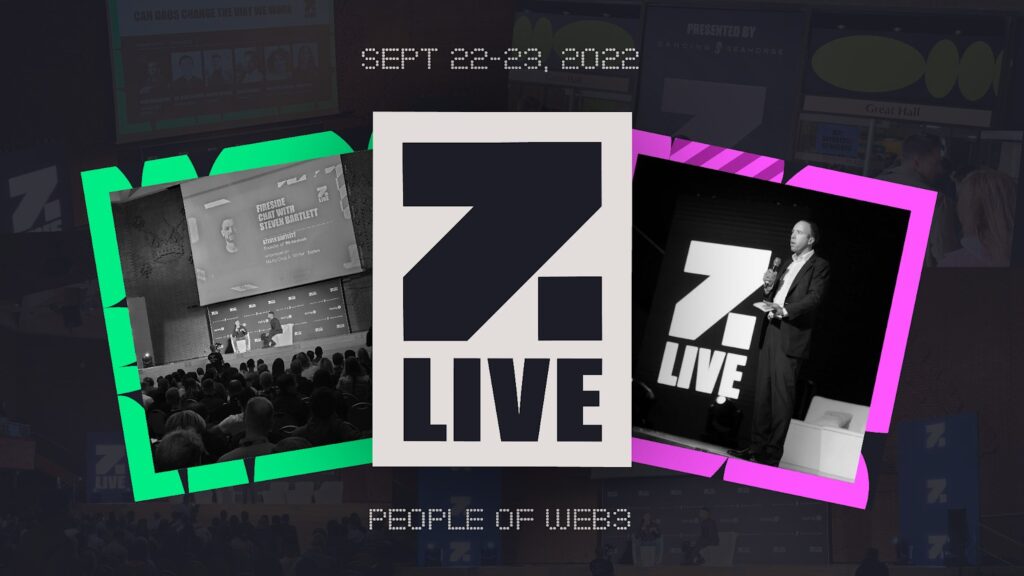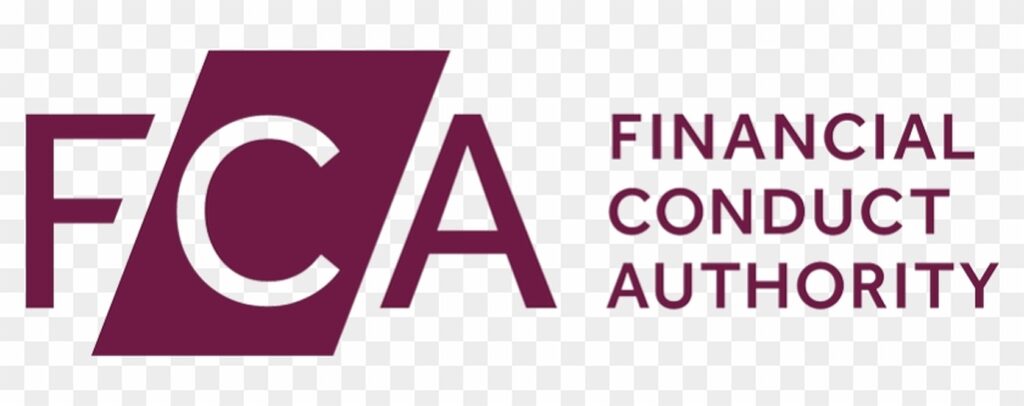Zebu Live, the United Kingdom’s leading crypto, blockchain and Web3 conference, has announced the successful conclusion of its two-day flagship event.
The conference took place in Kensington from Sept. 22 to 23, and saw over 2,000 members of the Web3 space in attendance. Over 150 of the industry’s most prominent and prolific pioneers shared their insights through speeches, workshops and panel discussions.
Some highlights of the event included a keynote speech from MP Matt Hancock, in which he stated: “The Queen was a supporter of crypto assets. […] She supported the British Blockchain Association. […] Now, the key is to use the opportunity of a new government to have a fresh start in the attitude and approach to digital assets, to cryptocurrencies, and to the use of the underlying blockchain technology.”
Highlights from Zebu Live also included a fireside chat with serial entrepreneur Steven Bartlett, who stated: “I think industries where centralization and a lack of transparency and a lack of verification are problems, those are going to change rapidly over the next few years due to blockchain […] So I don’t think Web3 is going to eat up every industry, but there is going to be a real war against industries which have those problems.”
In addition, the event featured numerous panel discussions with thought leaders and visionaries within Web3, a selection of which are highlighted below:
- The future of the crypto exchange
- Fashion enters the Metaverse
- Integrating NFTs into gaming ecosystems
- Bringing the power back to the artists with music NFTs
- Women in Web3
- Optimizing rewards and minimizing risk with DeFi
There were also a number of spotlight presentations throughout the event, from leading projects and organizations within the industry. These include:
- Arrested development: The risks and opportunities in the private DeFi space with Panther Protocol
- Bringing music into Web3 with Dancing Seahorse
- Scaling Metaverses and Web3 apps with Cudos
- Designing a Web3 strategy with Tezos
- Swapsicle: A DEX but with more flavor
- Stablecoins: Mass adoption vs. decentralization with NEAR Protocol
The full recording of the first day’s main stage talks from Zebu Live can be found here, and the full recording of the second day main stage talks can be found here.
Commenting on the event, Zebu Digital CEO and founder of Zebu Live Harry Horsfall stated: “We couldn’t be happier with how things went with Zebu Live. To see such an amazing turnout from so many distinguished individuals and organisations — both in Web3 and Web2 — is a testament to how prolific the interest is around this new frontier industry. The adoption of blockchain and Web3 cannot be stopped, and it’s the speakers, contributors and attendees present at Zebu Live who are pushing the boundaries of this burgeoning space. Next year is going to be even bigger and better — watch this space!”
At the end of the second day, the Zebu Live team announced that the third installment of its flagship event will be taking place on Oct. 5 and 6, 2023. Super early bird tickets are now on sale for the event, which is set to feature more speakers and attendees than ever before.
Follow Crypto Intelligence on Google News to never miss a story
Crypto companies were undeterred by initial failure to obtain licences to operate in Britain and were submitting new applications, the Financial Conduct Authority said on Thursday.
The FCA has been criticised by lawmakers and the crypto sector for being slow in processing licence applications and for rejecting swathes of applicants despite the UK government’s push to make London a global crypto hub.
“It’s no surprise that I still see many crypto firms still seeking to get licences here in the UK even though some have been denied those licences at the first pass,” FCA executive director for competition and consumers Sheldon Mills told a City & Financial conference.
“They know we have a good system of regulation and if they meet our standards that’s important for every jurisdiction that they seek to apply for around the world,” Mills said.
“That is a benefit to the UK economy and UK financial service industry, and is good for competition, inward investment and growth.”
Crypto firms are scrutinised by the FCA for their ability to stop their operations being used for money laundering or financing terrorism.
In March, the FCA said that 90% of crypto firms seeking approval for their anti-money laundering controls have either withdrawn their applications or been refused because they could not meet the standards.
Mills said 95 people have been hired to the watchdog’s authorisations team and the pending caseload has fallen by 40%.
“Over time, we expect faster, better decisions will support us in bringing down the costs of the regulatory system,” Mills said.
Jean-Marie Mognetti, chief executive of crypto asset manager CoinShares, said the company chose to list in European Union member state Sweden because Britain and the FCA were “not very keen” to see any crypto companies in London.
Mognetti said the European Union’s new set of ‘MiCA’ rules for fully licensing crypto firms will put the EU at an advantage over Britain.
“If you talk about attractiveness from a regulated activity [perspective], the fact that London is not part of MiCA and will not have passporting in Europe… is going to be a massive handicap,” Mognetti said.
Under a draft law now before parliament, Britain will licence stablecoins, but leave the rest of the cryptoasset industry for a later date.
Follow Crypto Intelligence on Google News to never miss a story
Cryptocurrency lender Nexo Group has been sued by authorities in New York and California for allegedly failing to register its Earn Interest Product, as U.S. regulators crackdown on digital asset platforms rocked by a crypto winter in recent months.
The lawsuits were filed separately by New York Attorney General Letitia James and the California Department of Financial Protection and Innovation (DFPI), according to statements on Monday.
Earlier this year, BlockFi had agreed to pay $100 million in a landmark settlement with the U.S. Securities and Exchange Commission and state authorities that said its interest-bearing product qualifies as a security and should have been registered.
Since then, digital asset platforms have been seeking more clarity on the rules governing such products, saying current regulations remain unclear.
Nexo’s interest accounts offered under the product promise an annual interest rate as high as 36%, the DFPI said.
Both regulators said the accounts would qualify as securities and should be registered as such.
“Nexo violated the law and investors’ trust by falsely claiming it is a licensed and registered platform,” James said in the statement, adding her office was seeking “disgorgement of any revenues derived from Nexo’s unlawful conduct”.
Nexo did not immediately respond to a Reuters request for comment.
Crypto prices have plummeted this year as a risk-off sentiment and fears of a looming recession crushed risky assets, forcing some companies into bankruptcy.
Follow Crypto Intelligence on Google News to never miss a story
The crypto market had a busy week, with most of the crypto assets showing a high degree of fluctuation. The world’s oldest cryptocurrency, Bitcoin, dropped by over 4 per cent during the week while Ether shed over 8 per cent.
XRP witnessed a mega rally due to the positive news around the ripple lawsuit and jumped by 30 per cent during the week. The third consecutive rate hike announced by the US Federal Reserve will have a significant impact on the crypto market in the coming weeks.
Here are some important crypto developments of the week:
Iran’s tryst with CBDC
Iran’s central bank has started CBDC trials to turn banknotes into programmable currency. The crypto rial will be a digital version of the country’s fiat currency, which could be a game changer for the country’s digital economy.
Iran recently approved a detailed regulatory framework for cryptocurrency, and the authorities have also restarted the process of providing licenses to the crypto miners under the new law.
UK government introduces new bill for crypto
The United Kingdom’s government announced a new bill to counter money laundering and fraud by empowering the authorities to scrutinize the crypto assets deployed for illegal activities. The proposed legislation is expected to wipe out the dirty money from the country and prevent crypto-related fraud.
Coinbase gets a license to operate in the Netherlands
Crypto exchange Coinbase has secured a license to offer full spectrum crypto services in the Netherlands. The Dutch regulator approved the Nasdaq-listed crypto exchange to operate in the Netherlands.
The Netherlands is a booming market for crypto-related products, and more crypto companies are expected to explore the huge business potential of the European market shortly.
Follow Crypto Intelligence on Google News to never miss a story
A hotly contested disqualification fight at the 11th U.S. Circuit Court of Appeals should provide a good indication of just how much damage the crypto law firm Roche Freedman is facing after last month’s revelation of surreptitious video recordings of name partner Kyle Roche.
The anonymous website Crypto Leaks published video clips of Roche, a well-known crypto litigator, last month. Roche appears to boast of a lucrative financial stake in blockchain company Ava Labs Inc and to suggest that he filed class actions against Ava competitors to benefit the blockchain company. Roche also seems in the video clips to disparage class action plaintiffs as “100,000 idiots out there” and to criticize jurors as “idiots.”
Roche, who did not respond to a query, has denied any improper litigation conduct, asserting in an Aug. 29 Medium post that the videos were illegally recorded by an operative working for a defendant in a class action filed by Roche Freedman. Roche also said that the clips were selectively edited, that he was intoxicated when the recordings were made and that Ava had no say in Roche Freedman’s crypto class actions.
The firm itself has acknowledged that Roche’s comments about class members and jurors were “inappropriate,” though it has also echoed Roche’s assertion that he was illicitly taped in a “set-up orchestrated by a defendant.” The firm contends that Roche’s boasts about using class action litigation to further Ava’s interests were “plainly false,” describing Roche’s statements as a misguided attempt to impress the purported venture capitalist he believed he was meeting with.
Roche Freedman nevertheless removed Roche from its class action practice, including ongoing cases against stablecoin creator Tether Ltd and crypto exchange Bitfinex, citing the “regrettable distraction” the videotapes have prompted.
That action has not appeased some critics. Roche Freedman is facing calls for disqualification in the Tether case not just from defendants but also from its own co-counsel at Selendy Gay Elsberg and Schneider Wallace Cottrell Konecky. U.S. District Judge Katherine Polk Failla of Manhattan has scheduled an Oct. 3 hearing on the disqualification requests, which contend, among other things, that Roche Freedman’s continued involvement in the class actions will bog down the litigation in discovery about Roche’s conduct.
But in the meantime, Roche Freedman is also fending off a disqualification motion at the 11th Circuit by Craig Wright, the self-proclaimed Bitcoin inventor who was hit earlier this year with a $143 million judgment in a case that Roche Freedman litigated on behalf of the estate of Wright’s onetime business partner David Kleiman. I’d argue that the outcome of the 11th Circuit disqualification will tell us even more than the Tether case about the extent of damage to the firm from the Roche tapes.
Roche Freeman’s client, which sought hundreds of billions of dollars from Wright, initiated the 11th Circuit appeal, despite obtaining a $143 million judgment from the trial court. Roche Freedman and co-counsel from Boies Schiller Flexner argued in their opening brief that the trial judge committed several critical errors before and during the 2021 trial against Wright, which ended with a $100 million jury verdict on one of the estate’s claims, but a defense verdict on a dozen other demands. Wright has not cross-appealed the judgment.
The timeline is significant. Roche and Freedman began representing the Kleiman estate back in 2018, before they even left Boies Schiller to found their own firm. Ava Labs did not exist when they first filed the estate’s suit against Wright. And according to Roche Freedman, the two name partners were nearly two years into the estate’s case against Wright before they were engaged to do any legal work for Ava.
So what does the Wright case have to do with Roche’s videotaped comments about his relationship with Ava?
There’s just one direct link, according to the Sept. 6 disqualification motion filed by Wright lead lawyer Andrés Rivero of Rivero Mestre. Roche allegedly referred to Wright in one of the video clips at Crypto Leaks as a “nemesis” of Ava’s founder, suggesting a motive to push hard against Wright. The disqualification motion also theorized that Roche’s boasting about his own wealth suggests that he does not feel constrained to put his clients’ interests ahead of his own. In this case, Wright’s motion argued, Roche Freedman blew up a potential settlement that would have benefited the estate.
But mostly, the brief is an opportunity for Wright and Rivero to highlight Roche’s unsavory comments, including his assertion that jurors and class members are “idiots.” The filing, in effect, invites the 11th Circuit to join in Wright’s disapprobation.
“[Roche’s] admissions of wrongdoing demonstrate the firm’s unlawful ‘business plan’ and its ongoing efforts to subvert the fair administration of justice, which heap scorn and disrepute upon the legal profession and every court (including this one) in which the firm has appeared,” Rivero argued.
Roche Freedman’s Sept. 19 response emphasized that the Wright litigation was well under way before Ava existed and was tried to a verdict months before Roche was videotaped.
“Wright’s suggestion that this action was brought for an improper purpose defies logic,” Roche Freedman said. “To state the obvious, this action was brought because plaintiffs — who have never met anyone from and have no affiliation with Ava Labs — believed in good faith that Wright converted their valuable bitcoin and blockchain-related intellectual property.”
Freedman elaborated via an email response to the query I sent to him and Roche. “Wright’s motion is frivolous,” he said. “While we understand he has a personal animus against the firm, we’d have hoped that wouldn’t be reflected in his filings. Unfortunately, we were wrong.”
Wright counsel Rivero retorted: “Their response doesn’t even start to address their confessed misconduct.”
Freedman said he does not expect other Roche Freedman adversaries to follow Wright’s lead. I’ve been writing about litigation for long enough to predict that if the 11th Circuit grants Wright’s motion, despite the relatively tenuous connection between Roche’s taped comments and his firm’s litigation against Wright, we can expect Roche Freedman opponents to pile on with their own disqualification motions.
The 11th Circuit motion is basically a test of whether judges can stomach Roche’s conduct. If they can’t, Roche Freedman could be in big trouble.
Follow Crypto Intelligence on Google News to never miss a story
Indonesia’s trade ministry plans to issue a new rule governing crypto asset exchanges, requiring two-thirds of the board of directors and commissioners to be Indonesian citizens and reside in the country, a deputy minister said Tuesday.
The measure comes following financial issues faced by Southeast Asia-focused cryptocurrency exchange Zipmex, which temporarily prevented users from withdrawing funds.
“We don’t want to give permits (to exchanges) carelessly, so only for those that meet the requirements and are credible,” deputy trade minister Jerry Sambuaga told reporters after a parliamentary hearing.
The ministry’s Commodity Futures Trading Regulatory Agency (Bappebti) will issue the new rule soon, he said, without giving a timeframe.
It will also require an exchange to use a third-party to store client funds and to prohibit exchanges re-investing stored crypto assets, according to a document issued by the ministry.
Bappebti acting head Didid Noordiatmoko told the parliamentary hearing that ensuring two-thirds of the board were Indonesians based in the country “could prevent the top management running away when a problem hits the exchange.”
Asked about a plan to launch an Indonesian crypto asset bourse, which has been delayed from last year, Sambuaga said the plan could hopefully be completed this year.
Cryptocurrency has gained popularity in Southeast Asia’s biggest economy with a total transaction volume of crypto assets up more than 1,000% in 2021 at 859.4 trillion rupiah ($57.37 billion), according to Bappebti’s data.
Follow Crypto Intelligence on Google News to never miss a story
London, United Kingdom, 23rd September, 2022, Chainwire
Kitsumon has announced the launch of its Breeding Mainnet, showing the significant progress made by the game project since its testnet announcement back on the 14th of June 2022, and hundreds of users testing this Gameplay aspect within this period of time also, which is now available.
The Breeding Mainnet allows players the full capability to create “Hybrid Kitsus”, which are the combination of two Kitsu creature NFTs. The offspring created inherits genetic elements through Digital DNA technology, providing over 17 trillion possible outcomes.
Players can get their hands on Egg NFTs through Kitsumon’s integrated marketplace, and hatch these eggs into Kitsu NFTs through the KitsuDex . If players own Infinity Potions, they can then use those consumables to create a Hybrid Kitsu through breeding, of which can be purchased via the dedicating potion page .
The creation of Kitsus also goes on to encourage battles within the eventual MOBA, as well as more player engagement and revenue generation for users. Breeding also promotes ‘Bloodline Royalties’, which is a royalty rewards system built into the DNA of all Kitsus by their creators. When a Kitsu is created, it is imprinted with up to three creator addresses and formulates a micro eco-system with income capabilities.
Players are also able to generate their own Referral Code via the new Player Rewards Dashboard, where they can obtain bonus rewards for anyone that obtains Potions via their unique link. Potions are an essential component for Breeding to occur. For more details please press here.
Players can now access the Breeding gameplay once they have connected their wallet via the new Kitsumon Breeding Page. An extensive guide on breeding can also be found here
CEO of Kitsumon, James Kirkby, had this to say:
“It has been a mega few months of continuous hard work and development by the whole Kitsumon team. We of course have seen the whole Crypto market in a Bear Cycle and this has been a unique opportunity to fine tune and take things to a new level in the background. We are proud of the amazing achievements this year thus far and now with the addition of a massive Gameplay feature such as Breeding going Live fulfills not just a milestone but also our continued promise to our fans and users to develop continuously and bring out exciting gameplay aspects to our game”.
Players can obtain potions here.
About Kitsumon
Kitsumon is an NFT game about collecting, breeding, and caring for adorable Kitsu pets. From play to earn professions like farming, fishing, cooking and an in-depth NFT breeding system, all the way to MOBA PvP modes and land acquisition.
To find out more about Kitsumon, please follow and keep up to date on these platforms:
DISCORD – TWITTER – YOUTUBE – TELEGRAM
Contacts
Head of Marketing
- Simon Buckingham
- Kitsumon
- simon.buckingham@kitsumon.com
Follow Crypto Intelligence on Google News to never miss a story
Chinese crypto billionaire Jihan Wu is expanding into the physical asset space.
Wu’s Bitdeer Technologies Holding Co. spent S$40 million ($28.4 million) buying Le Freeport, a maximum-security vault in Singapore, according to people with knowledge of the matter who asked not to be identified because the transaction was private. Dubbed Asia’s Fort Knox, Wu acquired the repository for fine art, precious gems, and gold and silver bars, from shareholders led by Swiss art dealer and founder Yves Bouvier, the people said.
A representative for Bouvier declined to comment. Wu confirmed the transaction in a text message in response to queries from Bloomberg News. The purchase took place in July, according to records with the accounting regulator.
Wu’s acquisition ends years of Bouvier’s troubled attempts to sell Freeport which is located near Changi Airport. Wu is considered one of the most influential people in cryptocurrency markets, having co-founded the world’s largest miner Bitmain Technologies Ltd. Wu, who has long-term residency in Singapore, relinquished control of the Beijing-based company early last year.
‘Fully Committed’
The price Wu paid represents a sharp discount to the S$100 million it cost to build the facility. Freeport opened in 2010 to fanfare as part of Singapore’s push to lure luxury collectors, wealth managers and bullion-trading banks including JPMorgan Chase & Co. and UBS Group AG.
About three quarters of the total price went to creditors including DBS Group Holdings Ltd., according to one of the people. After repaying debt and costs, Bouvier, who held 70% of Freeport, got about S$5 million from the sale, together with other shareholders.
The new owners are “fully committed” to supporting the Freeport Group with a view to expanding and improving the facilities and services, according to a letter signed by Freeport’s Chief Executive Officer Lincoln Ng to reassure tenants that there would no disruptions.
Bitdeer is the sole shareholder of Straitdeer Pte., which in turn owns Asia Freeport Holdings Pte., the entity controlling Le Freeport, according to records with the accounting regulator. Asia Freeport reported a loss of S$14.3 million in 2018, based on the latest publicly available financial statement.
Follow Crypto Intelligence on Google News to never miss a story
The author of Rich Dad Poor Dad, Robert Kiyosaki, is back with more warnings about the U.S. economy and advice on where investors should put their money.
Rich Dad Poor Dad is a 1997 book co-authored by Kiyosaki and Sharon Lechter. It has been on the New York Times Best Seller List for over six years. More than 32 million copies of the book have been sold in over 51 languages across more than 109 countries.
On Friday, Kiyosaki tweeted that “savers are losers,” elaborating:
“Today, U.S. debt in 100s of trillions. REAL INFLATION is 16% not 7%. Fed raising interest rates will destroy U.S. economy. Savers will be biggest losers. Invest in REAL MONEY. Gold, silver & bitcoin.”
A number of economists, such as those at brokerage firm Nomura Securities, are predicting a 100 bps increase in the Fed’s benchmark short-term rate next week. Investment strategist Ed Yardeni told CNBC Friday that he believes the Fed is “going to come around and conclude that maybe just get it over with, maybe 100 basis points instead of 75 basis points. And then maybe one more hike after that.”
Some people, such as Tesla CEO Elon Musk and Ark Invest CEO Cathie Wood, have warned that a major Fed rate hike risks deflation in the U.S. economy.
Kiyosaki has repeatedly warned that the biggest crash in world history is coming. In April, he said all markets are crashing. He has recommended gold, silver, and bitcoin before. However, recently he said gold is expensive, calling silver the best investment value today.
Last week, he urged his mailing list subscribers to get into cryptocurrency now, ahead of the biggest crash in world history.
The famous author has been advising investors to buy bitcoin for quite some time, stating for several months that he is waiting for the price of the crypto to bottom out before getting in.
After revealing that he was waiting for BTC to test $1,100, he said in July that he was in a cash position ready to buy the cryptocurrency. At the time of writing, bitcoin is trading at $20,103, down 6% over the past seven days and 14% over the last 30 days.
Follow Crypto Intelligence on Google News to never miss a story
It’s been a strenuous year for the crypto business. After hitting a high of more than $68,000 in November 2021, bitcoin has plunged to hover around $20,000.
But for long-term ETF investors, some experts advise to take crypto’s comedown in stride.
“If you’re going to do this right, then what’s been happening in the past nine months is totally irrelevant,” Ric Edelman, founder of Edelman Financial Services, told Bob Pisani on CNBC’s “ETF Edge” on Monday.
“If you’re investing for the next five to 10 years, this is just an ordinary blip in the marketplace, and you ignore it,” he added.
But with bitcoin coming off a nearly two-year low, the short-term temperaments are being met with a mix of positive and negative factors that are guiding where the crypto community goes from here.
“It’s a really dynamic moment in the market,” Matt Hougan, CIO of Bitwise Asset Management, told Pisani on Monday.
A massive technical upgrade in ethereum is a constructive force for the future of the world’s second-largest blockchain, Hougan said. A wave of institutional investors coming into the market, and an influx of venture capital activity are also forward-looking indicators for crypto’s future.
On the flipside, regulatory pressures from the Federal Reserve and the Securities and Exchange Commission are working against it.
“That’s creating this volatile market where crypto is going up and down and can’t quite figure out which way to go,” Hougan said. “And I think we’re probably stuck there, at least through September.”
Edelman explained that for institutional investors to engage with Wall Street firms, endowments and pension funds, regulatory and legislative rules need to be in place.
“The adults in the room recognize that regulation is a good thing,” Edelman said. “Right now, we have 1% engaging in crypto. You’re not going to get the other 99% until they have clarity on what the rules of the road are.
“We’re seeing new rules coming out from the Treasury, IRS, FINRA and from the Fed,” he said. “And from the SEC and CFTC. We’ve got over 50 bills in Congress right now. And all of this is very healthy.”
SEC Chair Gary Gensler has said the agency should have a major enforcement role in crypto, particularly for tokens. In a speech this month, Gensler sounded a warning signal to organizations he believes are violating existing securities laws, asking staff to possibly “fine-tune compliance for crypto security tokens and intermediaries.”
“I think there was a pretty direct threat against crypto trading venues – large-scale entities like Coinbase,” Hougan said. “They’re clearly on his horizon.”
In July, shares of the crypto firm tumbled after it was announced that it was facing an SEC probe into whether the platform offered unregistered securities.
“I’m happy to say it again and again: we are confident that our rigorous diligence process — a process the SEC has already reviewed — keeps securities off our platform,” said Coinbase’s chief legal officer Paul Grewal on Twitter.
Proposals for more SEC oversight of the crypto community are likely to be met with hostility from the community itself, although the agency has already taken steps to enforce its regulatory agenda.
In February, the SEC charged BlockFi Lending with failing to register the offer and sale of its retail crypto lending product. The firm agreed to settle the charges, paying a $50 million penalty and ceasing unregistered offers and sales of the lending product.
“A year from now, the large trading venues will be in the process of registering with the SEC,” Hougan said. “I think individual tokens, it’s a much longer term.”
Although the speculative assets have a challenging path forward, Edelman said the number of people who own cryptocurrencies continues to be a steadily rising figure.
“What’s interesting is that, despite the fact that [Coinbase is] down 70% from its high, the number of people who own it is unchanged,” he said. “Which means that those who wanted are not fazed by this.”
Beyond the crypto community, rates of adoption from large investment firms demonstrate that digital currencies are being embraced by Wall Street, Hougan said.
“Blackrock and Schwab coming in reinforces to everyday investor that bitcoin is not going away,” Hougan said. “I think that’s now been settled. It’s now how big is that future.”
Follow Crypto Intelligence on Google News to never miss a story












